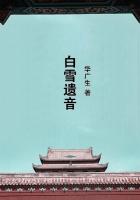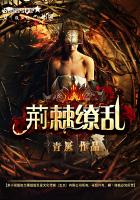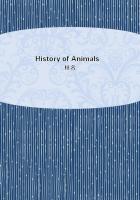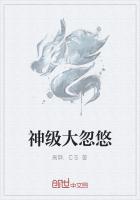Up to this point serfage had, in spite of its flagrant abuses, a certain theoretical justification. It was, as we have seen, merely a part of a general political system in which obligatory service was imposed on all classes of the population. The serfs served the nobles in order that the nobles might serve the Tsar. In 1762 this theory was entirely overturned by a manifesto of Peter III.
abolishing the obligatory service of the Noblesse. According to strict justice this act ought to have been followed by the liberation of the serfs, for if the nobles were no longer obliged to serve the State they had no just claim to the service of the peasants. The Government had so completely forgotten the original meaning of serfage that it never thought of carrying out the measure to its logical consequences, but the peasantry held tenaciously to the ancient conceptions, and looked impatiently for a second manifesto liberating them from the power of the proprietors. Reports were spread that such a manifesto really existed, and was being concealed by the nobles. A spirit of insubordination accordingly appeared among the rural population, and local insurrections broke out in several parts of the Empire.
At this critical moment Peter III. was dethroned and assassinated by a Court conspiracy. The peasants, who, of course, knew nothing of the real motives of the conspirators, supposed that the Tsar had been assassinated by those who wished to preserve serfage, and believed him to be a martyr in the cause of Emancipation. At the news of the catastrophe their hopes of Emancipation fell, but soon they were revived by new rumours. The Tsar, it was said, had escaped from the conspirators and was in hiding. Soon he would appear among his faithful peasants, and with their aid would regain his throne and punish the wicked oppressors. Anxiously he was awaited, and at last the glad tidings came that he had appeared in the Don country, that thousands of Cossacks had joined his standard, that he was everywhere putting the proprietors to death without mercy, and that he would soon arrive in the ancient capital!
Peter III. was in reality in his grave, but there was a terrible element of truth in these reports. A pretender, a Cossack called Pugatchef, had really appeared on the Don, and had assumed the role which the peasants expected the late Tsar to play. Advancing through the country of the Lower Volga, he took several places of importance, put to death all the proprietors he could find, defeated on more than one occasion the troops sent against him, and threatened to advance into the heart of the Empire. It seemed as if the old troublous times were about to be renewed--as if the country was once more to be pillaged by those wild Cossacks of the southern steppe. But the pretender showed himself incapable of playing the part he had assumed. His inhuman cruelty estranged many who would otherwise have followed him, and he was too deficient in decision and energy to take advantage of favourable circumstances. If it be true that he conceived the idea of creating a peasant empire (muzhitskoe tsarstvo), he was not the man to realise such a scheme. After a series of mistakes and defeats he was taken prisoner, and the insurrection was quelled.*
*Whilst living among the Bashkirs of the province of Samara in 1872
I found some interesting traditions regarding this pretender.
Though nearly a century had elapsed since his death (1775), his name, his personal appearance, and his exploits were well known even to the younger generation. My informants firmly believed that he was not an impostor, but the genuine Tsar, dethroned by his ambitious consort, and that he never was taken prisoner, but "went away into foreign lands." When I asked whether he was still alive, and whether he might not one day return, they replied that they did not know.
Meanwhile Peter III. had been succeeded by his consort, Catherine II. As she had no legal right to the throne, and was by birth a foreigner, she could not gain the affections of the people, and was obliged to court the favour of the Noblesse. In such a difficult position she could not venture to apply her humane principles to the question of serfage. Even during the first years of her reign, when she had no reason to fear agrarian disturbances, she increased rather than diminished the power of the proprietors over their serfs, and the Pugatchef affair confirmed her in this line of policy. During her reign serfage may be said to have reached its climax. The serfs were regarded by the law as part of the master's immovable property*--as part of the working capital of the estate--
and as such they were bought, sold, and given as presents*in hundreds and thousands, sometimes with the land, and sometimes without it, sometimes in families, and sometimes individually. The only legal restriction was that they should not be offered for sale at the time of the conscription, and that they should at no time be sold publicly by auction, because such a custom was considered as "unbecoming in a European State." In all other respects the serfs might be treated as private property; and this view is to be found not only in the legislation, but also in the popular conceptions.
It became customary--a custom that continued down to the year 1861--
to compute a noble's fortune, not by his yearly revenue or the extent of his estate, but by the number of his serfs. Instead of saying that a man had so many hundreds or thousands a year, or so many acres, it was commonly said that he had so many hundreds or thousands of "souls." And over these "souls" he exercised the most unlimited authority. The serfs had no legal means of self-defence.















